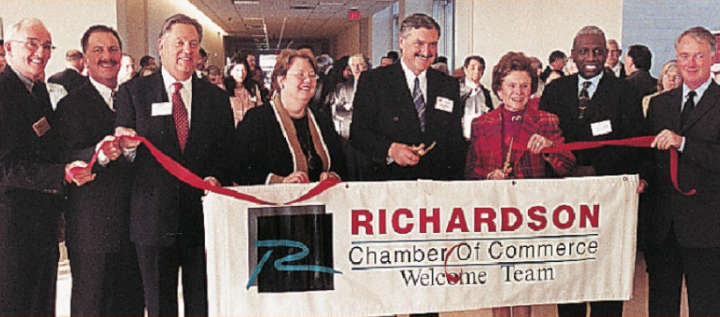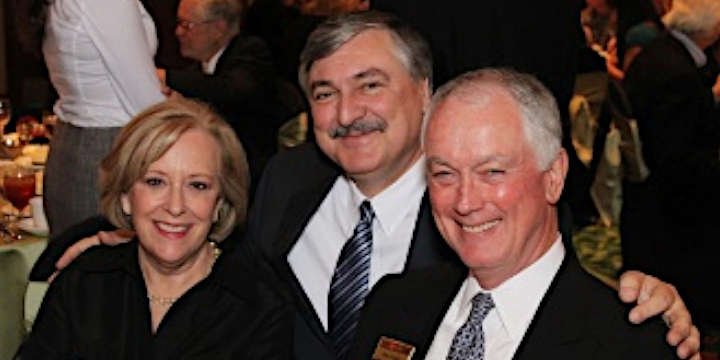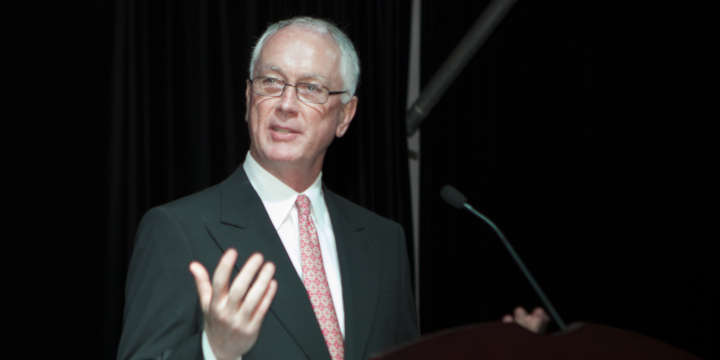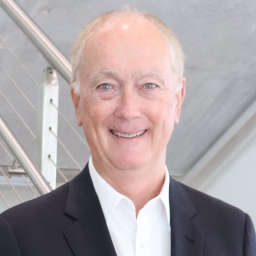Lessons in Leadership
Lessons in Leadership
Alumnus Ron Nash Relates Stories in a New Book
From The Time He Worked For Ross Perot To The Year He Spent At The Pentagon
By Glenda Vosburgh

Some people may be born leaders, but for most, leadership is a skill acquired and honed over time. The best time to begin learning, says Ron Nash, MS’79, is early in your career. His new book, The Making of a Business Leader: My Path to Leadership in the Information Technology Industry (Meadville, Pa.: Christian Faith Publishing Inc., 2021), aims to teach those valuable lessons.
Nash, CEO and chairman of Texas-based IT company Pivot3 for more than five years, is an active and ongoing supporter of UT Dallas and the Jindal School (see Gained Perspective: A Nearly 40-Year View of Helping UTD, below). Off campus, he is a frequent public speaker on the topic of leadership who uses stories from his own career experiences to drive the lessons home.
“I’ve discovered that if I tell a story and personalize it, people remember it,” he says. About 60% of the book, released earlier this year, relays stories he has frequently told his audiences.
Nash jokes that one reason he wrote the book was because, like most people, he was at home due to COVID-19 for more than a year, and he had the time. In addition, although he had shared his stories and lessons with his children, he wanted to record them for his grandchildren as well.
Nash’s stories are entertaining, but the lessons are important. The quality of an organization’s leaders can be the difference in failure or success, Nash says. He was fortunate to have learned important leadership lessons early in his career from the late business icon Ross Perot (1930-2019).
“I worked as a cleanup person for him,” Nash says. “For example, if the company (Electronic Data Systems, EDS) was dealing with an angry customer, or if a new software system was late being delivered, I worked on solving those issues after many others had tried and failed.”
When a system at EDS wasn’t working correctly, resulting in health claims not being paid on time, the governor of the state involved — Nash doesn’t like to say which state or which governor — interceded, threatening to cancel EDS’ contract. In addition, the situation was costing EDS significant money every day.
Nash was put in charge of delivering a quick solution. Ross Perot demanded a call at the same time every day for Nash to tell him how much more money he made for the company that day.
“He took my call every day for four months,” Nash says. “I would give him my report, and he’d say, ‘All right; talk to you tomorrow.’ ” Nash says. “He was very intense, and I learned that being a strong leader requires intensity. I tell people that you can be smart and have expertise, but to be a leader you must be intense and willing to work hard.”
It wasn’t unusual for Perot to call him late at night or early in the morning to discuss a work-related issue.
“Young people today talk about a work-life balance, but I have a different perspective,” Nash says. “You need to achieve work-life balance on a long-term basis, not every day. There are times when you need to work long hours to advance your career. Push to get your career moving fast in years when your family life allows it.”
In addition to writing his book, available at Amazon, Apple, Barnes and Noble, and Walmart, Nash recently spent almost a year in Washington, D.C. As the senior adviser on transformation and reform for the Department of Defense, he made recommendations on significant projects of massive scale, working in the Office of the Secretary of Defense.
“It was a fascinating experience,” Nash says. “The Department of Defense employs 2.5 million people and has an annual budget of more than $700 billion, and so my learning curve was huge. There are two sides to the department. There is the war-fighting side, and they do a very good job. The other side is the back office, which isn’t doing a very good job. They have a lot of excuses, but the truth is they are giving poor service and support to the war-fighting side.”

Trying to make improvements sometimes proved frustrating. For example, Nash and the team he worked with identified a number of military warehouses around the United States that were no longer necessary. What Nash soon learned was that Congress had oversight of and involvement with any military site closures.
“We wanted to close 28 warehouses, and we had 28 members of Congress who objected to losing those jobs in their districts,” Nash said. “It was a case of ‘We’re not closing a warehouse in my district.’ So, the closures didn’t happen.”
Nash returned to Dallas and launched a new company, Nash Technology Group, which provides key business executive leadership to corporations and organizations, particularly in rapid-growth and turnaround situations.

He also serves as co-chairman of New Dimensions: The Campaign for UT Dallas, with fellow UT Dallas alumnus, John Olajide, BS’04, a graduate of the Erik Jonsson School of Engineering and Computer Science.
“It’s an important campaign,” Nash says. “We are the large, high academic-quality research university for this area. We can legitimately go to any company for support because UT Dallas is educating their future employees, training existing ones and spinning off companies that they might want to invest in or acquire. We have a strong story of why UT Dallas is one of the most important growth engines for the future of DFW.”
Gained Perspective: A Nearly 40-Year View on Helping UTD

Ron Nash’s support of UT Dallas and the Jindal School dates almost from his 1979 graduation as a master’s-degree management and administrative sciences major.
“When I was a graduate student at UT Dallas, I was only interested in the education I was getting,” he once said. “After I graduated, I stepped back and gained some perspective.”
That perspective has sustained a nearly four-decade commitment to the University and the school.
In 1983, Nash helped found the University’s Alumni Association and served four years as its chairman. His extended service on what was formerly the University’s Development Board led to him becoming a lifetime member of its successor, the Executive Board, a group of business and community leaders dedicated to advancing UTD.
In 2000, the same year he became chairman of the school’s advisory council, he agreed to chair the fundraising campaign for the school’s first building, which opened in 2003. While the University of Texas System Board of Regents allocated $30 million to the building, Nash helped bring in the other $8 million of its total cost.
In 2010, he and his wife established the Susan C. and H. Ronald Nash Distinguished Professorship in the School of Management, a post held since 2014 by Finance and Managerial Economics Professor Michael Rebello.
In 2011, the University honored Nash with a Distinguished Alumni Award (JSOM had bestowed one on him in 2000). That was the year before he signed on as co-chair of the Realize the Vision campaign — UT Dallas’ first major comprehensive fundraising campaign — which raised more than $273 million to help the University achieve tier-one status as a major research institution.
And now he is co-chairing the University’s second major campaign, New Dimensions: The Campaign for UT Dallas, which has a $750 million fundraising goal.